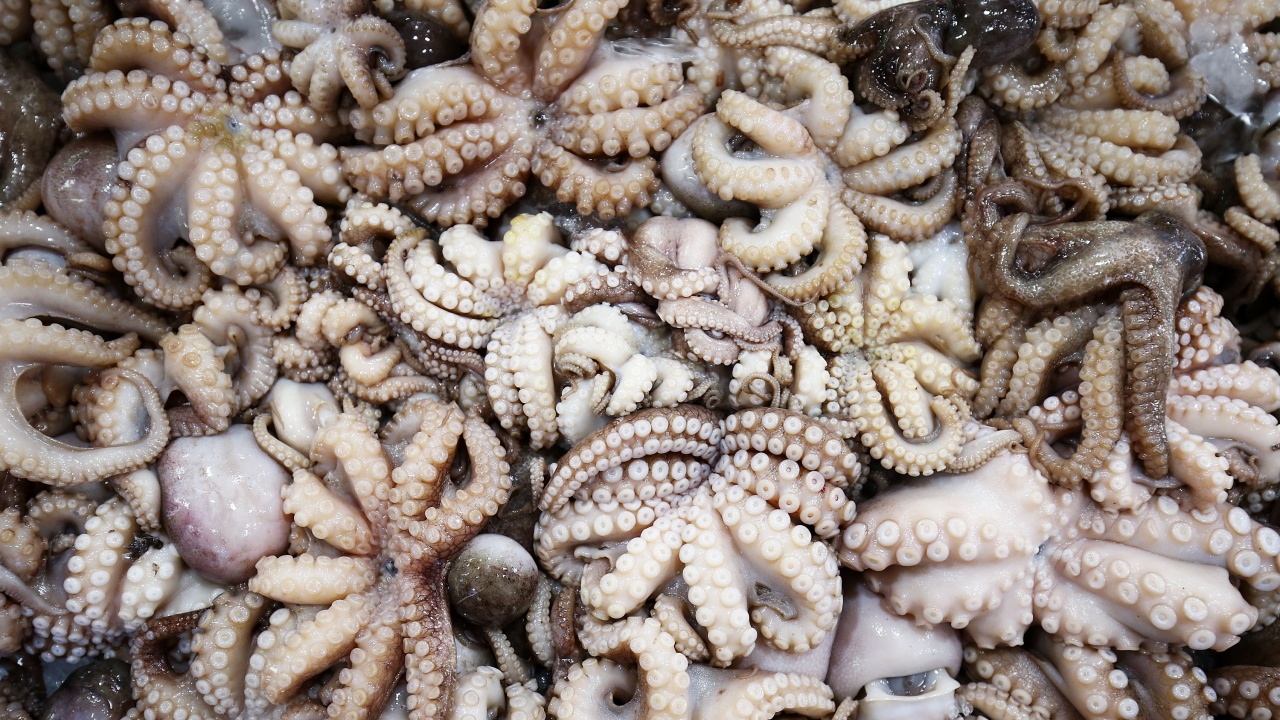Listen to the news
A plan to build the world's first octopus farm is raising serious concerns among scientists about the welfare of these intelligent creatures, BTA reports.
The facility, located in Spain's Canary Islands, will grow around a million octopuses a year for food, according to confidential documents seen by the BBC.
Octopuses have never been reared under such conditions, and some scientists describe as "cruel" the method described for killing the specimens with ice water.
Spanish multinational Nueva Peskanova, which is behind the plans, denies that octopuses will suffer.
Animals caught in the wild using fishing lines, traps and other means are consumed all over the world, including countries in the Mediterranean, Asia and Latin America.
The race to uncover the secret of captive breeding has been going on for decades.
It is difficult because the larvae eat only live food and need a carefully controlled environment.
The Nueva Peskanova company announced in 2019 that it had achieved a scientific breakthrough.
Scientists have developed a model of octopus tentacle movements
The possibility of intensive octopus farming has already led to opposition: lawmakers in the US state of Washington have proposed banning the practice before it even begins.
Nueva Peskanova's plans call for the octopuses, which are generally solitary animals and are accustomed to the dark, to be kept in tanks with others of their kind, sometimes with constant light.
The octopus vulgaris will be housed in around 1,000 shared facilities in a two-storey building in the port of Las Palmas in Gran Canaria.
The end of their lives will occur by placing them in containers of water, the temperature of which is minus three degrees Celsius, it is clear from the documents.
There are currently no welfare rules in place as octopuses have never been farmed commercially before.
However, studies show that this method of killing fish causes a slow, stressful death.
To supply markets including the US, South Korea and Japan, Nueva Peskanova wants to produce 3,000 tonnes of octopus a year.
That equates to about one million animals, with about 10-15 specimens living in every cubic meter of tank, say experts familiar with the plans.
The company estimates in its documentation that "mortality will be 10-15 percent."
Jonathan Birch, an associate professor at the London School of Economics, reviewed more than 300 studies.
According to him, they show that octopuses experience pain and pleasure.
"Large numbers of octopuses should never be together in close proximity. This leads to stress, conflict and high mortality," he says.
In the wild, octopuses are quite agile hunters.
"Nueva Peskanova" proposes to feed the farmed animals with industrially produced dry fodder obtained from "waste and by-products" of already caught fish.
The tanks will be filled with seawater piped in from a neighboring bay.
The facilities will be of different sizes depending on the life stages of the octopuses, with salinity and temperature strictly controlled.
The initial offspring of 100 octopuses - 70 males and 30 females - will be taken from a research center in Galicia, northern Spain.
The plans state that the company has achieved a level of "domestication" of the species and that they do not "show significant signs of cannibalism or competition for food".
Scientists are calling on the Canary Islands authorities to block the construction of the octopus farm.
So far, there are no answers to the sent inquiry.
About 350,000 tonnes of octopus are caught each year - more than 10 times the amount since 1950 - putting pressure on the population.
octopuses
